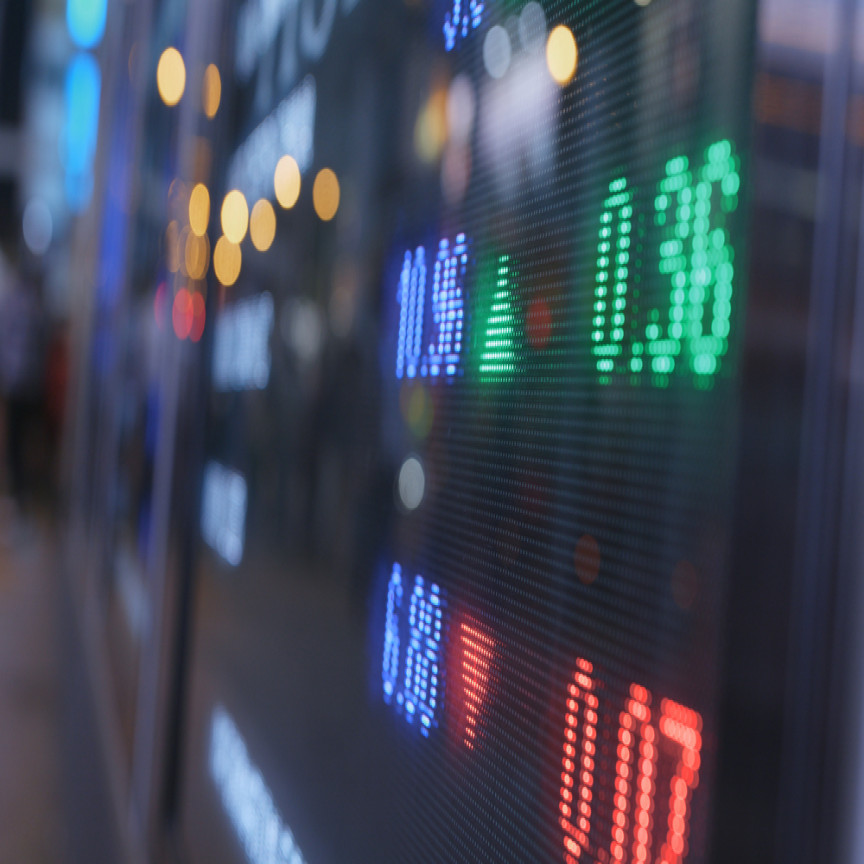The world is different after the corona outbreak. There is uncertainty across businesses and a stir in the stock market. Some industries like aviation, travel and tourism are facing worst financial crisis, while others are also waiting for their good times.
Amid the chaos, there are some positive sentiments in the market. The investors are gaining some confidence back, and they feel that the pandemic has reached its peak. The positive comments by the PM on the strength of Australia’s fight against pandemic has boosted the positive sentiments in the market.
The possible flattening of the infection curve for the country, along with latest results of Gilead suggesting faster recoveries of patients with the coronavirus drug, are oozing sense of positivity.
The social distancing formula seems to be working, and the number of hospitalisations have reduced with the implementation of strict lockdown measures.
Notably, businesses are struggling with cash crunch, supply disruption, weakening demand, logistics issues and workflow management. Keeping pace with the race for survival, businesses are toning down workforce, raising capital, implementing cost reduction initiatives, deferring dividends and slashing/deferring guidance.
Let us look at three businesses on their toes to fight the crisis for their sustainability:
ARQ Group is Australia’s leading digital marketing player that helps small to medium businesses build their online presence. On 27 February 2020, the company had announced its expectations to achieve $11M-$12M EBITDA However, the company has now withdrawn its FY2020 guidance in the wake of corona impact.
ARQ cited that towards the end of the first quarter, the business was entirely on track to reach the guidance. However, in the second half of the march, the market witnessed an unprecedented situation due to COVID-19 restrictions.
It stated that the impact was apparent and small businesses have reduced their spending on digital marketing services.After a proper review, the company has decided to undertake cost-cutting initiatives, having full support of its lenders ANZ and NAB.
On 27 February 2020, ARQ Group cited forthcoming cost-cutting of $0.9m in direct costs and $2.8m in corporate expenses annually. Now, the annualised savings for FY2020 is projected to be $1.6m more in addition to the $3.7m cost announced earlier. Several mid-level and senior roles will be removed to ensure simplified operational structure to survive the crisis.
ARQ traded at $0.092, down 6.12% on 17 April 2020 (1:16 PM AEST).
Electro Optic Systems Holdings Limited (ASX:EOS)
Electro Optic Systems is a technology company that operates in Defence, Space, and Communication sectors, providing weapon system optimisation and integration for land warfare, optical sensors for military and commercial applications. It also specialises in microwave, satellite and on the move radio products.
In this pandemic phase, EOS is struggling to maintain its business model as the majority of its products are sent to overseas, with some delays in the delivery impacting cash flows. EOS has divided its single shift into two equal shifts, which has temporarily reduced its production by 20 per cent.
However, the company has enough inventory to continue its production for more than three months, and there are no supply chain issues. Moreover, till date no client has indicated cancellation of the existing contract. While, $3 billion pipeline of probable contracts remains unchanged.
The business model is such that the company gets cash-on-delivery once the products are delivered. The inability to deliver the products overseas is resulting in a shortfall of cash receipts. EOS has therefore revised its FY2020 EBIT guidance to $27 million which represents EBIT growth of 25 per cent.
The company has successfully completed A$134 million institutional placement of new fully paid ordinary shares at an offer price of A$ 4.75 per new share. The capital raising, well supported by their existing institutional shareholders and many new institutional investors, has been undertaken to enhance liquidity, aiding working capital for inventory expansion and investments to push growth.
Moreover, EOS has more than $3 billion in potential contracts. The company is all set for a new contract from an existing customer soon, with no delivery delays expected and prompt payment terms.
EOS stated that despite the issues it is facing during these tough times, its position remains strong in the market.
Also, if the pandemic restrictions will get extended for a longer period, EOS has multiple untapped debt facilities to keep functioning correctly.
EOS traded at $4.750, up 1.06% on 17 April 2020 (1:16 PM AEST).
Based in Sydney, InvoCare is the leading funeral services provider in Singapore, New Zealand, and Australia. IVC has recently announced the successful completion of $200m institutional placement of 19.2 million fully paid ordinary shares at an offer price of $10.40 per new share.
The funds are raised to strengthen the company's balance sheet during the coronavirus pandemic and to support the growth initiatives.
CEO, Martic Earp was pleased with the placement's success and the immense support shown by new investors and existing shareholders.
After the institutional placement, the company will next move to its non-underwritten share purchase plan (SPP) plan, offerings up to $30,000 worth subscription to the eligible shareholders. The SPP is capped at up to $50m in aggregate.
InvoCare is implementing a package of proactive measures to prudently manage its liquidity position, including dividend deferment, negotiating extension of the debt tranche due to mature in February 2021, reducing/deferring expenditures.
The company looks well-positioned with the capital raising programs. However, the functioning of the business is yet to be observed with the potential impact on the funeral business due to the social distancing restrictions in the pandemic time.
IVC traded at $10.945, down 1.75% on 17 April 2020 (1:16 PM AEST).
In a bid to come out of the pandemic phase without much damage to the business models, these three players have revised or withdrawn their FY2020 guidance and raised enough funds to support operations and growth initiatives. However, the further sustainability of these players depends on the near-term impact of the coronavirus crisis on their businesses, containment of the virus and gradual easing of lockdown restrictions.



